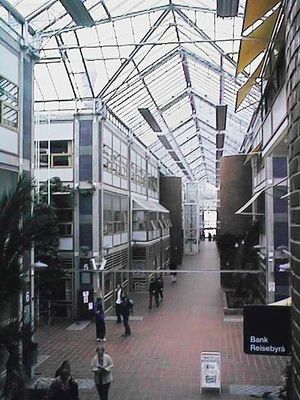Difference between revisions of "User:Dorothee Beermann"
| Line 1: | Line 1: | ||
| − | [[Image:SummerschoolCIDLES.jpg|thumb|300px|right|Community Driven Language Documentation Summer | + | [[Image:SummerschoolCIDLES.jpg|thumb|300px|right|Community Driven Language Documentation Summer school at CIDLeS, Minde Portugal, August 2014]] |
[[Image:DragvollInside.jpg |{20}x{50}px|thumbnail|left| Here I work: NTNU - Dragvoll campus]] | [[Image:DragvollInside.jpg |{20}x{50}px|thumbnail|left| Here I work: NTNU - Dragvoll campus]] | ||
Revision as of 07:17, 2 June 2015
I am a professor in linguistics at the Norwegian University of Science and Technology. In recent years my main interest has been the Digital Humanities, and linguistic tool development for descriptive work in linguistics. I am an advocate for Open Access to research data, and through the TypeCraft initiative I try to make linguistic data, in the form of Interlinear Glossed Text, more assessable for future research.
My fields of interest are formal syntax and lexical semantics. I teach constraint-based grammars, mainly Lexical Functional Grammar. I am also interested in linguistic methodology and how to bridge the gap between data-driven approaches and analytic linguistic work. I enjoy working with different languages using a down-to-earth descriptive approach, as must as I enjoy analytic work in linguistics. I have for example worked on the Kwa-languages of West Africa, and on the Bantu language Ruyankore-Rukiga spoken in Uganda, and are very committed to producing 'good stuff' for these language communities.
I have spent a lot of time with project work. More about this work and about recent publications you can find on my homepage. My own project is the TypeCraft project. Since last year we cooperate with CIDLeS, the Center of Social and Language Documentation in, Minde, Portugal.
A productive way to work together with other linguists is to create an annotation project on TypeCraft. Evaluating annotations together and discussing alternative glossing possibilities makes linguistic work fairly concrete. The discovery of 'new' or 'unexpected uses' of familiar pattern is only one of the bonuses of creating and sharing Interlinear Glossed Text in TypeCraft.

